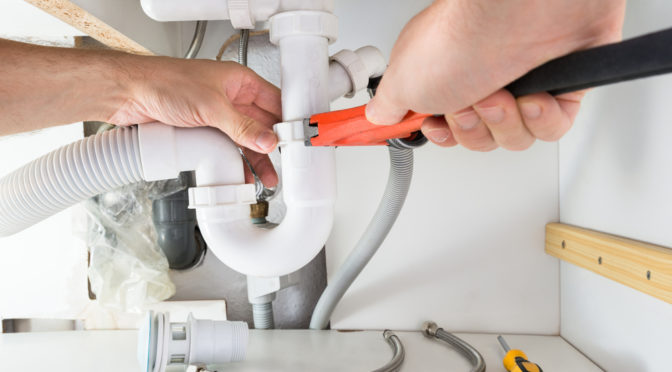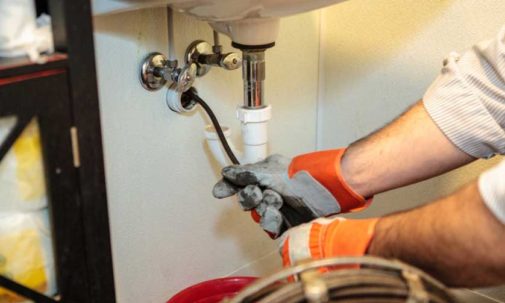Urgent Plumbing Tips: Steps to Take Until A Plumber Arrives
Urgent Plumbing Tips: Steps to Take Until A Plumber Arrives
Blog Article
What are your beliefs on Expert Tips for Emergency Plumbing Repairs?

Plumbing emergencies can strike at any moment, creating stress and anxiety and potential damage to your home. Whether it's a burst pipe, a blocked drain, or a leaking faucet, knowing how to take care of the situation up until an expert plumbing professional arrives can save you from additional difficulties. This article offers necessary emergency situation plumbing ideas to aid you mitigate damage and regain control during a plumbing dilemma.
Shut off the Water System
The very first step in any kind of pipes emergency situation is to shut down the water. For local concerns, such as a leaking faucet or commode, switch off the valve near the fixture. When it comes to a significant leak or burst pipe, find your home's major water shut-off valve and turn it off right away. Recognizing the area of these valves in advance can save useful time throughout an emergency situation.
Address Small Leaks with Short-term Repairs
Tiny leakages can promptly become significant issues if left untreated. Utilize these short-term repairs till professional help shows up:
While these solutions aren't irreversible, they can aid decrease water loss and damages.
Unclog Drains Pipes Securely
A stopped up drainpipe can be a discouraging and untidy problem. Right here's exactly how to tackle it:
If these techniques don't function, prevent making use of too much pressure, as it might aggravate the obstruction.
Handle Overflowing Toilets
An overflowing toilet can cause immediate disorder. Below's what you need to do:
Turn off Your Water Heater
In particular emergency situations, such as a burst pipe, it's important to turn off your water heater. This protects against getting too hot or damage to the device when water stops flowing. Switch off the power supply to the water heater (electric or gas) and allow it cool down to stay clear of prospective hazards.
Momentarily Stop a Burst Pipeline
A burst pipeline can result in significant water damages in mins. To reduce the concern:
Call an expert plumbing professional right away to address the issue completely.
Deal With Frozen Piping Thoroughly
In cooler environments, frozen pipelines are an usual emergency. If you suspect an icy pipe:
Stop More Damage
Taking quick activity to decrease damage can save you money and time in the future. Here's how:
. Have an Emergency Situation Pipes Package
Prepare a standard pipes emergency situation set to deal with minor issues effectively. Your package must consist of:
Having these devices accessible can make a significant difference in your ability to manage emergencies.
Know When to Call a Professional.
While quick fixes can help temporarily, particular pipes concerns call for prompt specialist focus. Call a plumbing professional if:.
Immediately getting in touch with a specialist makes sure the issue is resolved appropriately and avoids further issues.
Conclusion.
Pipes emergency situations can be overwhelming, yet with the best expertise and tools, you can manage the circumstance effectively till assistance gets here. By shutting off the water supply, attending to small leaks, and making use of short-term solutions, you can reduce damages and keep your home safe. Bear in mind, these tips are momentary solutions; constantly consult an accredited plumbing professional to deal with the origin of the problem. Prep work and quick thinking are your ideal allies in any pipes emergency situation.
8 Helpful Tips for Managing Plumbing Emergencies at Home
If your plumbing system hasn’t failed once, wait for it because almost everyone has a story to tell. Sometimes, it could be simple emergencies such as a leaking pipe, a blocked cistern, or even a big burst pipe. In situations like this, you need to have some handy tips to save you some money and from possible damages.
Take care of minor issues early.
Sometimes, you could have avoided an emergency by taking proactive measures while it was still early. Some major plumbing emergencies can be a result of an ignored minor issue. We recommend that you have items like plumbing tapes and other related items. A plumbing tape can allow you to manage minor leaks before the plumber arrives.
Cut off the water supply.
This tip is essential in almost any type of leakage problem. For problems like minor leakages in the toilet or kitchen, turn off the supply that takes water to the affected pipes. If the leakage is a major pipe, you must shut off the supply valve to the entire building. This will help you avoid flooding your home and neighbors if you share a flat.
Know your plumbing system
Folks typically move into a new apartment without understanding the water supply around the building. This can prove disastrous if a water emergency arises and the plumber is far away. The previous tip will prove useless if you don’t practice this one. More importantly, know where your water shut-off valve is located – you’ll need that knowledge to prevent potential home floods.
Have some common handy tools
There are lots of plumbing emergencies that you can handle without hiring a plumber. That’s why you must keep some tools available always. Some tools that you can use to fix simple plumbing emergencies easily include plumbing tapes, screwdrivers, thread seal tapes, plungers, pliers, tape measures, and rubber gloves.
Insulate your pipes from cold
You’ll save yourself from many plumbing expenses if you protect your water pipes from the cold. This is because of the harmful effects that cold weather can have on your pipes. During winter, your pipes can burst from being overly expected to freezing temperatures. So, make sure insulators are there to keep the pipes working correctly.
Avoid practices that will clog your toilet.
Many people indulge in practices that can damage the plumbing system of the entire building. One of these is when they use their toilet to dispose-off garbage. They flush all kinds of things, such as paper towels, bandages, hairs, female sanitary products, etc., down the toilet. This will block your toilet in the long run, incurring unnecessary expenditures. Dump such waste in the trash instead.
Check your dials regularly.
Sometimes, there could be leakages in your home without noticing them in time. So, constantly monitor your water meter dial. If the dial is reading when there is nobody using water, this is an indicator that there is leaking. Check for leaks immediately. Call a plumber as soon as possible if you can’t find any.
https://www.constructionplacements.com/8-helpful-tips-for-managing-plumbing-emergencies-at-home/

I was introduced to that editorial about Plumbing Emergencies: Tips on What To Do Before from a good friend on another web page. Don't hesitate to take the time to distribute this entry if you liked it. We love reading our article about .
Click For More Info Report this page